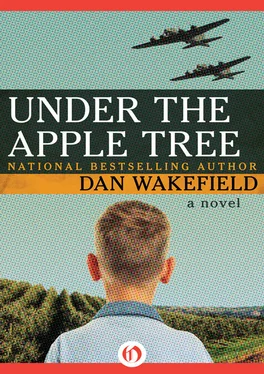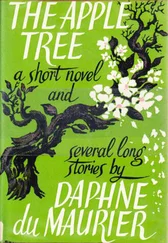“Besides, her parents are weird about things.”
The Colbys were real snooty, even though they lost their big bucks in the Crash and had to sell the fabulous house on the hill that looked like some kind of mansion in Gone With the Wind . Now they just lived in a regular frame two-story with an old-fashioned gingerbread front porch on Pine Street. Some people claimed they got even snootier when they had to move to Pine, and looked down their noses at their neighbors. Shirley wasn’t snooty, though; everyone said she was just “reserved” because she was always so quiet and polite, but she always smiled and spoke to everyone, and proved she wanted to be a part of things when she went out for cheerleader. She turned out to be about everyone’s favorite cheerleader, even though—or maybe because—she didn’t really seem like the others. Even when she jumped up high and spread her legs wide at the end of a cheer, there was something ladylike and delicate about her. She reminded Artie of a princess disguised as an ordinary high school girl.
A minute or so before the start of the movie she came around the corner, looking serious and beautiful. She was wearing a nice plaid coat and had on stockings and loafers. Shirley never wore bobby sox, or skirts and sweaters, but came to school in dresses or jumpers with blouses and always the stockings and loafers or real heels, like college girls or ladies wore. She had on a white scarf that matched her mittens and a furry white hat that came down over the line of her dark bangs.
When Roy saw her, he looked like a pinball machine when somebody put a nickel in.
In the movie, Artie sat next to Roy who sat next to Shirley. Shirley had offered to sit in the middle of Artie and Roy but Artie had hurriedly made some dumb excuse about how he liked to sit on the aisle, because the idea of sitting in the dark next to Shirley Colby, her knees and boobs only inches away from him, her perfume that smelled like essence of honeysuckle making him dizzy, would have been too much to take, so he sat next to Roy, with Shirley a seat away. Still, though Artie laughed and looked at the movie, from the corner of his eye he kept watching to see if Roy would try to make out with Shirley. Once, when there was a big laugh, Roy real casual slung his arm on the armrest of the scat between him and Shirley, but Shirley kept her hands in her lap and Roy never reached for one, much less a knee. Either he was playing it real cool, or he actually had grown into some mysterious wisdom about, other things being more important than making out.
At Damon’s Drugs after the movie Artie had a double-chocolate malt, Shirley had a cherry Coke, and Roy had a cup of coffee, black without cream or sugar. It was part of his new grown-upness, Artie guessed.
“Before Pearl Harbor,” Roy said, “I guess I was living in a dream world. I kept pushing the War out of my mind, like it wasn’t real. Just something you saw in the news-reels.”
“I guess a lot of us did,” said Shirley.
“I sure did,” said Artie, wanting to get his two cents in. But Roy and Shirley didn’t even seem to hear him. They were staring at each other’s eyes as they talked, like they were hypnotized or something. Maybe this was the thing that was more important than sex. Hypnotism. It seemed like before you got around to learning one thing there was a new one you had to figure out that was even more complicated.
“The trouble with me is,” Roy went on, “I pushed everything out of my head that was really important.”
“Lots of people do,” said Shirley.
“You don’t,” Roy said.
“You don’t really know me.”
“I’d like to. I mean, I’d like to know your mind. What you think about things. I feel like I’ve just started thinking myself, for the first time in my life, and I feel this goddamn—excuse me—this real deep urge to talk about it with someone. Someone who has their own values, real standards.”
“You never seemed to be interested in things like that.”
“That was before Pearl Harbor.”
Artie sucked up the last of his malt, making a noise with his straw, and went to look at the magazine rack. He couldn’t stand that hypnotizing stuff going on with Roy and Shirley.
Roy made Artie come along when he walked Shirley home, though Artie couldn’t figure why since Roy and Shirley were still in their hypnotism state and Artie felt like a fifth wheel. Roy stopped when they got to Shirley’s house, not even going to the door with her where he might have tried for a smooch good night, but just stood and looked at her eyes and said he had never enjoyed anything so much as their talk and he had so much more to say to her he wondered if she’d take a walk with him tomorrow after school. Not a date, just a walk, a chance to talk about serious things.
Shirley said yes.
Real life went on, like the Henshaw game, and the Packers played the Bears for the pro Western title, and they even had the Rose Bowl, but it was switched from California to the stadium at Duke University in Durham, North Carolina, so the big crowds that came to such a historic event would not be endangered by attack from Japanese bombers who might make afraid on the West Coast. You knew it was Wartime even though you were listening to a ball game on the radio, because the sportscasters, patriots like everyone else, never mentioned the weather anymore—like whether the playing field was muddy or frozen—so that Jap and German spies could not pick up vital information for possible surprise attacks. The whole country was on the alert, Artie included.
When the family saw Roy off on the train for Boot Camp in Quantico, Virginia, no one but Artie seemed to notice that Shirley was wearing Roy’s old silver ID bracelet. It hung significantly but loosely from her left wrist. Artie figured Roy didn’t have time to get some links of the chain taken out so it would fit her better. There wasn’t time to think of all that stuff during War. The main thing was, she was wearing it.
Roy had never gone steady because he was too busy playing the field and Shirley had never gone steady because she was too pure and didn’t want to get that serious about a boy but now suddenly because of Pearl Harbor they had come together—only to be torn right apart by Roy going off to the Marines.
Just before Roy swung aboard the train he kissed his mother and hugged his father and went into a long, movie-passion slurparooney with Shirley and when that was finally over and lipstick was smeared all over Roy’s mouth like a wound, Roy knelt down and biffed Artie one on the shoulder, and whispered, pointing his thumb to Shirley standing stoically behind him, “You take care of her while I’m gone, ole buddy.”
Artie gulped and nodded, and when everyone had waved off the train and it had disappeared into a dot and then nothing, Shirley, pale and beautiful, took one of Artie’s hands in her own as they walked back with his folks to the car.
Artie couldn’t speak. Shirley’s hand was cold but it seemed to burn his own. He did not let go and run, he walked straight ahead, chin up, heart pounding at a million miles a minute, shoulders squared, eyes forward. He did not even care if other kids saw him walking like this holding Shirley Colby’s hand and make fun of him. He would do his duty.
This was War.
The shadow of a Messerschmitt slipped across the moon.
Or was it a dive-bombing Stuka?
The aircraft spotter adjusted his binoculars, squinting. His hands were cold but he held them steady. From his rooftop position he commanded a sweeping view of the terrain. Bare skinny branches of winter trees cast menacing shadows against the snow. The small rows of houses and the long fields beyond were silent, hauntingly still. The spotter fought back the urge to sniffle, fearful of betraying his position.
Читать дальше












